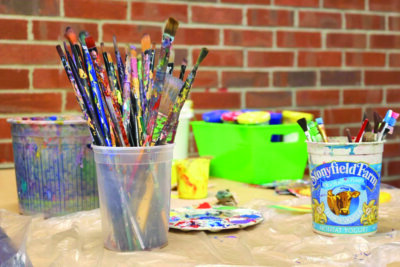The ingenuity of idioms
My mother, a hardscrabble Kansas ranch girl with little formal education, spoke in idioms, pithy historical sayings, many of which made no sense. They contained a general truth that wasn’t clear from the words. In contrast, my father, an astronomer, spoke in precise literal terms; he was a scientist.
Growing up poor during the Dust Bowl of the Great Depression, Mom’s sayings resonated with color, earthy humor and wisdom. I learned the gist of her sayings but didn’t know the source.
There are thousands of idioms that define a condition or situation. They reflect what she called the “good old days” when life was hard but purer and simpler. Here is a sampling of some of her sayings and their meaning:
 “They didn’t have a pot to pee in.” Urine was used to tan animal skins, so families used to pee in a pot. Once a day it was taken and sold to the tannery. If you had to do this, you were “p poor.” If you were so poor that you could not afford to buy a pot to pee in, you were considered the lowest of low.
“They didn’t have a pot to pee in.” Urine was used to tan animal skins, so families used to pee in a pot. Once a day it was taken and sold to the tannery. If you had to do this, you were “p poor.” If you were so poor that you could not afford to buy a pot to pee in, you were considered the lowest of low.- “Don’t throw the baby out with the bathwater.” Don’t throw something good out when trying to get rid of something bad. Baths were taken on Saturday night so that everyone was fresh for church on Sunday. Mom, the oldest of five children, pumped and hauled the water for a large tub that was heated with coal. Dad came first, then mom, then the kids, with the oldest coming first. The baby came last. By then the water was so dirty that you couldn’t see the baby.
- “It’s raining cats and dogs.” Prairie houses had thatched roofs with thick straw. When it was cold, the only way cats and dogs could get warm was to congregate on the roof. In a sudden heavy rain storm the roof would get slippery and they would slide off.
- Sometimes the family would have the luxury of pork, which would make them feel quite special. Dad would “bring home the bacon.” When guests stopped by, they would visit and cut off a little to share, hence the saying, “Chew the fat.”
- Lead cups were used to drink ale and whiskey. Sometimes the combination would knock the imbibers out for a couple of days. They were laid out on the kitchen table, and the family would gather around and eat and drink and see if they would wake up. Hence the custom of holding a “wake.”
- Some people were so poor that they could not afford a slate floor, so they spread straw on the floor to cover up the dirt. They were “dirt poor.”
- People would bury their dead in coffins, but when the coffins were reopened, one in 25 were found to have scratch marks on the inside, and they realized the person was buried alive. So, they would tie a string to the corpse, lead the string through the coffin and tie it to a bell. Someone would be assigned to sit out at the graveside the first night—“the graveyard shift”—and listen for the bell. Thus, someone was either “saved by the bell” or considered “a dead ringer.”
- “The pot calling the kettle black.” This idiom first appeared in the Spanish novel Don Quixote. Don’t criticize someone for an issue that you yourself are guilty of. The expression refers to a pot criticizing a kettle being black with soot when both are dirtied by the same cooking fire.
- “Don’t look a gift horse in the mouth.” The best way to tell a horse’s age is to look in its mouth. When given a horse as a gift, this was considered rude—like looking for the price tag on a gift. When someone does something nice for you, be grateful and don’t try to evaluate its value.
- “Hit the hay.” In the 1800s, mattresses were often filled with hay. Before going to bed, people would hit the hay to fluff it up and chase any bugs away.
And now, dear reader, I would encourage you to email me no more than three idioms that you heard growing up in your family that aren’t clear from the words. I will collect them and feature some in a subsequent article. Please include your name.
Sources: 50 Terms in Rural America; The Idiotic Joys of Idioms; 36 Classic Sayings Every Man Should Know; Wikipedia; my own recollections.
Related Stories
Popular Stories
If you enjoy The Charlotte News, please consider making a donation. Your gift will help us produce more stories like this. The majority of our budget comes from charitable contributions. Your gift helps sustain The Charlotte News, keeping it a free service for everyone in town. Thank you.
Andrew Zehner, Board Chair








